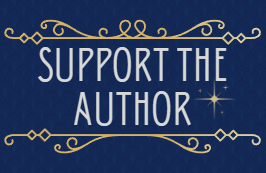There were two things Nate Quinn really, really, really adored about being at Brookfell Academy: 1. He loved that he was considered school royalty for his familial relationship with his brother (and for basically doing nothing), and 2. He was eternally grateful that someone as good-looking (but not as good-looking as him) and brilliant as Sam Watson was enrolled.
Their debates were that of legendary status by their second year together. The debate club started opening the classroom to any student willing to watch and stand listening to the innate back and forth concerning the morality of the death penalty. Some people brought snacks and drinks from the downstairs lounge.
All in all, Nate was tired of it. The display, he would call it. It came as second nature, to smile and laugh and do all the things that charmed people, but something in his bones was tired of it. He leaned over his Brookfell-emblazoned podium and sighed, eyes glossing over. The audience was tighter packed than before, and he tried not letting the boredom play on his face.
Sam, meanwhile, stood hunched over, fingers twitching tight around the edges of the podium's top as he spoke passionately about why the death penalty was necessary. His face was not the most expressive (his stint with the theater department taught him that), but his gray eyes were sharp, observant, focusing in on the people who were watching him intensely. He ran his trembling fingers through his dark brown hair, leaving it in slightly disheveled waves despite how short Sam kept it. His fingers never stopped moving.
Nate closed his eyes. He knew Sam opposed the topic, but hearing him, now, you would assume he was a staunch supporter of the thing. Nate also knew he could convince people if he picked the right words, if he emphasized the right line.
He'd make one hell of a politician one day.
It was such a shame, though, that no other student could be as unpredictable and interesting as Sam. In a way, Nate liked that Sam clearly hated him a little. It made for a challenge, a puzzle he couldn't quite figure out.
Their eyes met for a moment. Sam's fair complexion turned a fiery red, making his sprinkling of freckles across his face stand out more. He'd only really noticed that in the beginning of their back-and-forth – when Sam was flustered or embarrassed. Getting Sam angry was all the more tantalizing.
“Nate, your retort?” asked the debate head.
Nate hummed and puckered his lips in thought. He straightened out, rolling his shoulders back, and grinned. He could almost hear the sighs of the audience charmed by him when he did that. Nate leaned forward, propping his head in his hand, and said simply, “How inhumane of you.”
Sam sighed, exhaustion dripping off his fingertips. A myriad of emotions played through his stare before irritation ravaged him. “Say something worthwhile or I'm calling it, here.”
A lie. Sam wanted to win more than Nate did, but Sam didn't seem to realize that this maneuver was one he'd done before. It was kind of charming, the way Sam almost always played into his hand time and time again. Maybe it was the anger, or the sheer desire to be better than him, but Sam kept coming back with ease.
Nate leaned back against the podium, the picture of ease. His fingers drummed on the wood as he let the room settle. The silence stretched just long enough to draw out anticipation – Nate was good at that, though why some people hung on every word he said was a mystery to him.
Not that he complained, really. Every time Sam didn’t swoon the same way everyone else did, it stoked irritation in Nate’s gut. In a way, he was grateful for it.
This debate was different. Personal in a childish way, he knew, but still different. This was payback. Sam should've known better than to get between him and the school cafeteria's garlic bread.
Finally, he tilted his head, the glint of amusement never leaving his blue eyes. “I can absolutely appreciate your case for the death penalty as a deterrent.” Nate could almost hear Sam's groan under his breath. “But the thing about your argument that makes it factually implausible is the question of 'what happens when you get it wrong?' When the justice system makes a mistake and punishes the innocent?”
Sam didn't flinch. In fact, his shoulders straightened out. He'd prepared for this, Nate realized, and started shuffling through his note cards with a quickness that made Nate want to see how his fingers moved. “Mistakes do happen, I can agree with that –” Though the look in his eyes made Nate realize he hated saying it. “– but that's why we have processes in place. Appeals, reviews, DNA testing, and when the evidence is beyond a reasonable doubt, when the crime is heinous enough to warrant it, justice must be served. There has to be accountability.”
Nate needed only one push. One nudge, and there'd be fire between them in a way that satisfied an itch in him for days afterward.
He leaned forward, his face pained and expressive despite feeling otherwise. “Accountability? Is that the word you want to use? Why not call it thinly-veiled vengeance, because it sounds like you're advocating for the latter. And last I checked, vengeance isn't justice. It's emotion. It's flawed. And it makes society no better than the criminals we're punishing.”
A murmur rippled.
Sam cocked his head to the side with a sigh, and his lips curled down. Disappointingly, he didn’t rise to the bait this time; he let the tension hang. “You're conflating the two,” he countered, his voice calm but sharp, like a blade hidden in silk. There was a melody of how he said it, a musical-ness that Nate wished he had seen when Sam tried to be in theater.
Nate grinned.
“Accountability is about maintaining order. If the system doesn’t enforce consequences for the worst crimes, then what message does that send to society? That you can murder without fear of the ultimate consequence? How do you protect the innocent without showing the guilty what’s at stake?”
His smile broadened, easy and bright. He was about to take Sam Watson down.
Sam shuddered. His composure started faltering.
“See, I would agree with you on that, Watson,” he began carefully, “but you're wrong. Research shows that the death penalty isn't an effective deterrent. States without it have consistently lower murder rates. So really, all that your ‘ultimate consequence’ talk does is waste taxpayer money on lengthy trials and appeals. It’s performative justice, not protective justice.”
The fire sparked.
Sam’s nostrils flared slightly – just enough for Nate to notice – but his voice remained cool. “And yet,” he said, leaning forward slightly, “you conveniently ignore the victims’ families in this discussion. They’re the ones who live with the aftermath. They’re the ones who have to watch their loved ones' killers sit in a cell for decades, with the system providing them shelter, food, and medical care—while their victims are six feet under. Where’s the justice for them?”
It started to burn.
Nate’s smile faltered for the briefest moment, replaced by annoyance and recklessness. Then it was gone, replaced by his usual nonchalance. “Are you trying to sell me morality dressed up as practicality?” he asked, spreading his hands. “Morality is subjective, and practicality is against you. The death penalty is expensive, ineffective, and irrevocable. There’s no coming back from a mistake.”
Sam didn’t hesitate this time. “And what’s your alternative? Life imprisonment? Sure, let’s put them in prison – give them decades to appeal, to use resources that could go toward rehabilitation programs for people who can be reformed. If you're arguing practicality, Nate, then the death penalty is the better choice. It frees up resources for the system to focus on prevention and rehabilitation.”
The debate spiraled from there. The two spoke over each other with such a passion, such gravitas, that it sucked the air out of the room. Windows started condensing. The audience watched them like a tennis match – back and forth, back and forth – until someone had to concede or the teacher stepped in. None of it mattered. Sam's face returned from its flushed color, and Nate reveled in it. Everyone around them melted away. They might have been on the same soccer team and vied for the same marks, but in debate, it was just them. They were arguing, certainly, but it was just them, equals onstage.
And Nate reveled it.
There were never any winners or losers in debate club. The debate head interrupted a particularly passionate speech from Sam about the flaw of Nate’s idea of morality and called it there, twenty-three minutes after the club should have ended. Sam certainly had the last word in it, and took that as a win.
Nate gave him that. He won with the rubber balls that morning. He'd get Sam with the shaving cream, next, if things didn't need shifting around.
The school halls were emptying by the time the debate room started dispersing. Nate weaved his way through congratulatory pats and kind words that made him subconsciously roll his eyes until he got to Sam. “Good debate,” he offered, holding his hand out for a friendly shake.
He stood with a younger girl. His sister, Olivia, Nate recalled. She was mousy, three years younger than him, with the same dark-colored hair but hazel eyes. She had a lighter sprinkling of freckles than her older brother.
Nate nodded towards her. “How do you think your brother did?” he asked, easily. Earnestly.
Sam tucked his sister behind his arm. “Nate,” Sam warned, and his claws were out.
He rolled his eyes. Their one silly rule. “Jesus Christ,” he sighed. He didn't like that, but also kind of did. He hated that Sam didn't trust him to talk to anyone in his family – what would Nate do, poison their opinion of him? – but also liked that protectiveness. That yearning for safety. It felt carnal, warm. He admired that, in a way.
“You know better.”
Nate rolled his eyes. “I was only asking.”
“The day you ‘only ask’ is the day I don't sweat off, like, ten pounds from a debate.”
He liked that, too. He liked that Sam got so nervous in their debates.
Still, Nate backed down, much to his own annoyance. Sam: 3; Nate: 2. He offhandedly said his farewell, leaving behind trophies with his brother's name on them, and exited the room to a gaggle of students congratulating him. He soaked it in, wondering briefly what Sam would look like if he had that same enthusiasm for Nate (strange, but exciting, in a way), but the moment was pretty short-lived – Nate was already bored of the bright looks and the brighter words. People had that effect, losing their luster pretty quickly.
Emma Canmore squeezed herself through, elbowing an upperclassman in the side, and snaking an arm through his. She grinned and stuck out her tongue at the rest of them and the two started sailing down the corridor. “It's exhausting, watching you two,” she said.
“I hope you find someone just like him,” Nate jeered back, baring his teeth. “Miserable and fun.”
Emma rolled her eyes, grunting. “Your 'miserable and fun’ is absolutely painful to watch, sometimes.”
Even with their departure, Nate's pull dragged students along with him, like the tide dragging seaweed. Everyone, even the desperate, poor souls, wanted a sliver of Nate's glory. “‘Sometimes’ implies you like watching.”
She stuck out her tongue – a typical Emma response when she has nothing to say.
“Wonderful. Silenced.”
“I say nothing because you won't listen.”
Nate tsked her. “You are no fun, as per usual.”
She smirked. “Quiet, you. Now why was Sam ready to bite your head off with his sister?”
“Ugh, it's so dumb. It was just our stupid rule.”
Their rule. Like anything great, there were limiters, things to stop the ball from truly rolling. It was established by Sam out of fear, once Olivia started at Brookfell. At first, Nate thought this was a means of provocation, akin to telling someone not to think about a purple giraffe and then doing it, but there was a desperation that Nate could not ignore. Looking back, Nate willingly conceding felt strange, out of character. He didn’t even put up much of a fight. Sam asked – begged – him to not involve her, and Nate agreed. Anything between them stayed that way. None of their friends and family would get caught in the crossfire of their strange dance.
It wasn't as if anything they did was dangerous, though. Would it really hurt if anyone got involved?
“Well, probably for the best,” she sighed. “He hates you, so best to keep your nose away from what he cares about.”
“You just don't understand us,” Nate said.
“Oh, I don't think you understand, my dear, sweet Nathaniel.”
“I think you're full of bullshit.”
Again, her tongue darted out, but in the sliver of moments where Emma was silent, she managed to find something to say: “Well, you've had your fill of Sam today. Proud of you, getting it out of your system and all that. You said you'd help me with my cartography project.”
“I did, I did,” Nate sighed, glancing back as Emma led him towards his locker.













Comments (0)
See all